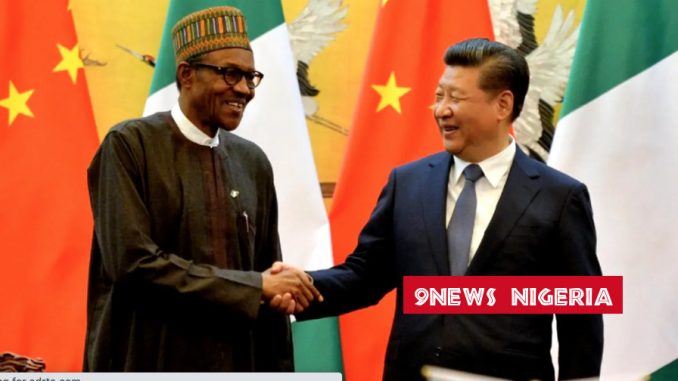
Nigeria’s government has been warned by the 36 states not to tamper with funds accruing to them and the country’s 774 Local Government Areas in the guise of satisfying $418 million in London/Paris Club loan refund-related judgement debts.
The states said they were not parties to any suit in the London/Paris Club refund, and were, therefore, not liable to any person or entity in any judgement debt being relied on by the federal government.
The Body of Attorneys-General of the Federation, through which the states spoke, warned that should the federal government proceed to make any such deduction, it would be acting illegally and in contempt of their appeal challenging the judgement.
The states gave the warning in a 4 April 2022 letter in their response to an 11 November 2021 letter from the Finance, Budget and National Planning Minister, advertising the commencement of the deduction for the liquidation of the alleged judgement debts.
The Body of Attorneys-General of the Federation, through its Interim Chairman, Mr. Moyosore Onigbanjo, SAN, of Lagos; Interim Secretary, Dr. Abdulkarim Kana of Nasarawa and the Attorneys-General of Abia, Benue, Rivers, Taraba and Zamfara, for and on behalf of all the state attorneys-general, in the letter, said: “Their Excellencies have drawn our attention to your letter referenced above, which the various states of the Federation received about the end of March 2022.
Please note that the states of the Federation were not parties to any contract or suits concerning the London/Paris Club refund, from which the said judgement debts arose.
Consequently, the 36 states of the federation are not liable to any person or entity in any judgement debt.” The letter warned that the deduction of the allocations due to the states from the Federation Account to liquidate the London/Paris Club loan refund-related judgement debts is the subject of an appeal filed at the Court of Appeal. It added that the body’s legal representatives had published a public caveat in national newspapers notifying the public of the pending appeal, which also advised concerned parties “to desist from dealing with the subject matter thereof, pending the hearing and determination of the appeal and the application for injunction pending appeal.”
“The law requires you to restrain from taking any step, whatsoever, that is capable of interfering with the res [subject matter] of the suit, which is now a subject of an appeal,” it concluded.
The states continue their policy of maximum pressure on Aso Rock to bend to their position on fiscal probity. Some of Nigeria’s subnational units are challenging the powers of the Federal Government through the Federal Inland Revenue Service to collect value-added taxes; all of them are involved in another suit that accuses Abuja of failing to remit funds generated from stamp duties and the third one is this fight over Paris as well as London Club refunds.
The Attorney General of the Federation, Abubakar Malami has set himself up as a pantomime villain with the state governors and their attorneys-general on an issue where conciliation and constructive engagement could reap dividends. As a result, Nigeria is hurtling fast towards an inflection point on the subject of fiscal federalism.
While the legal back and forth plays out, a political solution might be on the cards and even prove to be a durable one considering this administration’s penchant for disrespecting court orders when it suits its interests.
The current state of play, however, is that the Federal Government is determined to continue to carry on business as usual while the worsening fiscal situation of the states means they will continue to find loopholes and points of overreach on the part of Aso Rock to challenge and gain more revenue.
To paraphrase Napoleon, Nigeria’s states will fight harder for their economic interests than their political rights.
The positive is that fights for the said economic interests often lead to the realisation and codification of political rights. It is important that subnational units remain committed to exploring legal means to settle key questions of this nature, in order to obtain a clear position of the law and work them into the political-institutional framework of the country.
As the fiscal situation of the country gets more precarious, we will see more of these types of activities, and it will only have one impact – strengthening Nigeria’s democracy.
According to 9News Nigeria findings, Nigeria’s first loan from the Paris Club of Creditor Nations was a US$13.1 million loan taken from the Italian government in 1964 for the building of the Niger Dam. From that time till the end of the decade, Nigeria’s borrowing from foreign lenders was generally insignificant.
The project was executed and the loan was among the foreign loans relieved off Nigeria during the Obasanjo’s democratic regime.
In 2006, Nigeria became the first African country to settle its public debt under a scheme devised to help the world’s poorest and indebted states. The country under former President Olusegun Obasanjo paid off $18 billion to secure forgiveness of the balance of its nearly $30 billion debts to the London and Paris clubs of foreign creditors.
But in recent years, Nigeria has continued to massively depend on foreign loans with the expectation to invest in infrastructures and national development. However, these monies borrowed from foreign countries especially China have not been put into the purported use due to devastating corruption.
As of December 2020, Nigeria’s external borrowings stood at $28.57 billion USD, while as of March 2021, using the N381 exchange rate, President Muhammadu Buhari had borrowed N17.06 trillion, putting together external and domestic borrowing.
This means that since 2015, the government of Buhari has borrowed an average of N2.83 trillion per year.
9News Nigeria
